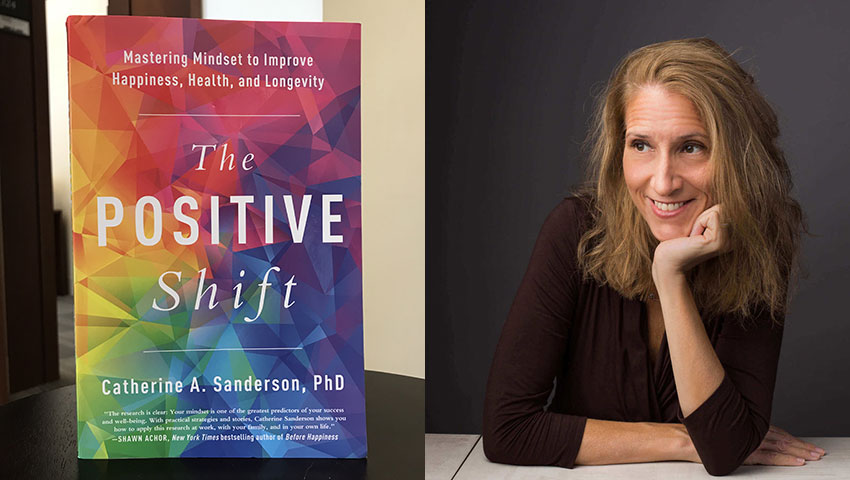
Manwell Family Professor in Life Science (psychology) professor Catherine Sanderson looks back at December 2003 as a landmark time in her life. She received tenure at Amherst that month and learned that she was pregnant.
“I already had two sons, and I was going to have a third child, a girl. And I had a permanent job,” she explains. “I remember thinking at the time, ‘Gosh, my life is pretty much perfect right now.’”
Three months later, however, Sanderson was “thrown for a loop” when her 57-year-old mother was diagnosed with stage IV ovarian cancer and then died within the year.
The heartbreaking experience prompted Sanderson to reprioritize how she wanted to spend her time and compelled the professor to, among other things, agree to serve as the faculty adviser for the College’s cancer support group for students. To this day, Sanderson hosts the group’s meetings at her house “so these kids can share really difficult experiences with others who understand.”
When students tell her that the gatherings are valuable to them, Sanderson responds that they are equally meaningful to her. “Even though we are having these intense emotional discussions, when the kids leave, I feel really happy,” she says. “Being the advisor of the group is an incredibly rewarding part of my role at Amherst as a faculty member.”
Sanderson offers many similarly personal anecdotes—celebratory, self-deprecating, humorous and otherwise—in her new book, titled The Positive Shift: Mastering Mindset to Improve Happiness, Health, and Longevity. The three-part book explores and summarizes the wealth of research available today on well-being, and offers some scientifically proven tips.
It is a deeper dive into “Positive Psychology: The Science of Happiness,” a popular lecture that she delivers at venues across the country as part of the One Day University program.
Part 1 of The Positive Shift defines “mindset,” and examines how it affects memory, health and longevity, while Part 2 delves into the factors that influence mindsets, such as environment, genetics and personality.
Part 3 exhorts readers to take action to change their own thinking and behavior, and offers some concrete ideas.
Sanderson’s suggestions in that section range from the difficult but extremely rewarding (try to find the positive in devastating/traumatic circumstances, or quit social media) to the seemingly mundane (tip well, donate blood or let another driver merge in front of you in traffic).
In large part, “our happiness in daily life, the state of our physical health, and even how long we live are largely determined not by external events, but rather by the way we think about ourselves and the world around us,” she writes in the book. But for that shift in perspective to work, she adds, people need to put their newfound views into action.
Sanderson says that her experience of hosting the cancer support group, for example, checks two boxes in the list of activities that promote happiness. By inviting the students to her home, she facilitates (1) rewarding social relationships among them and with herself, while (2) doing a good deed at the same time. “Both of these things absolutely make me feel happy,” she says.
At the end of The Positive Shift, Sanderson emphasizes what she says is “perhaps the most important point”: Happiness is contagious.
“We’ve all had the experience of smiling at a stranger and then seeing that person reciprocate our smile. Happiness works in precisely the same way,” she explains. “[P]eople who are happy help others around them see the world in a more positive light, take small daily stresses in stride, and stop and smell the roses. And these steps happy people take transfer to others, who in turn pass them on again.”
“So … work as hard as you can to take steps to live a happier, healthier life,” she concludes, “and to pass on that happiness to those around you.”